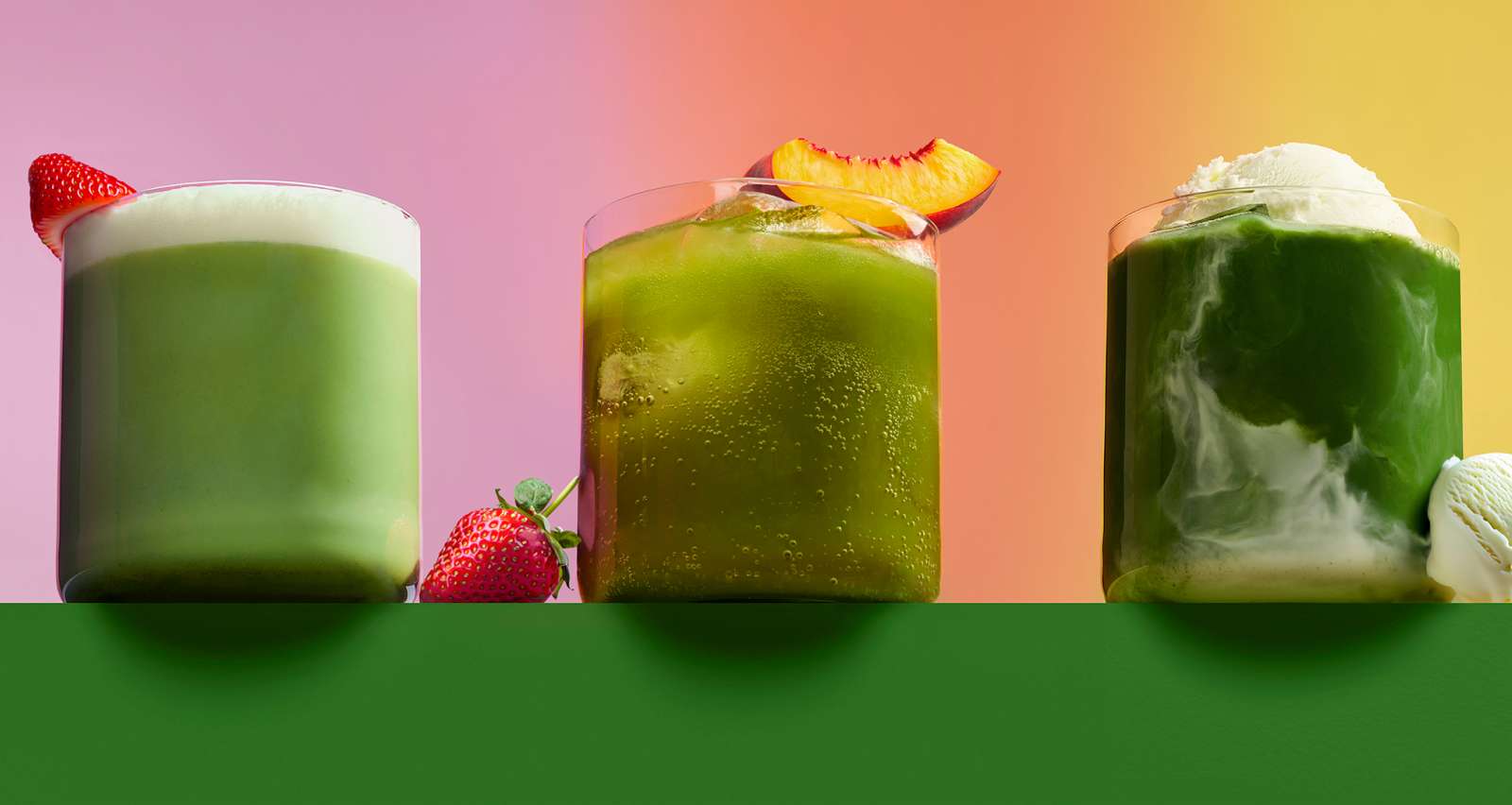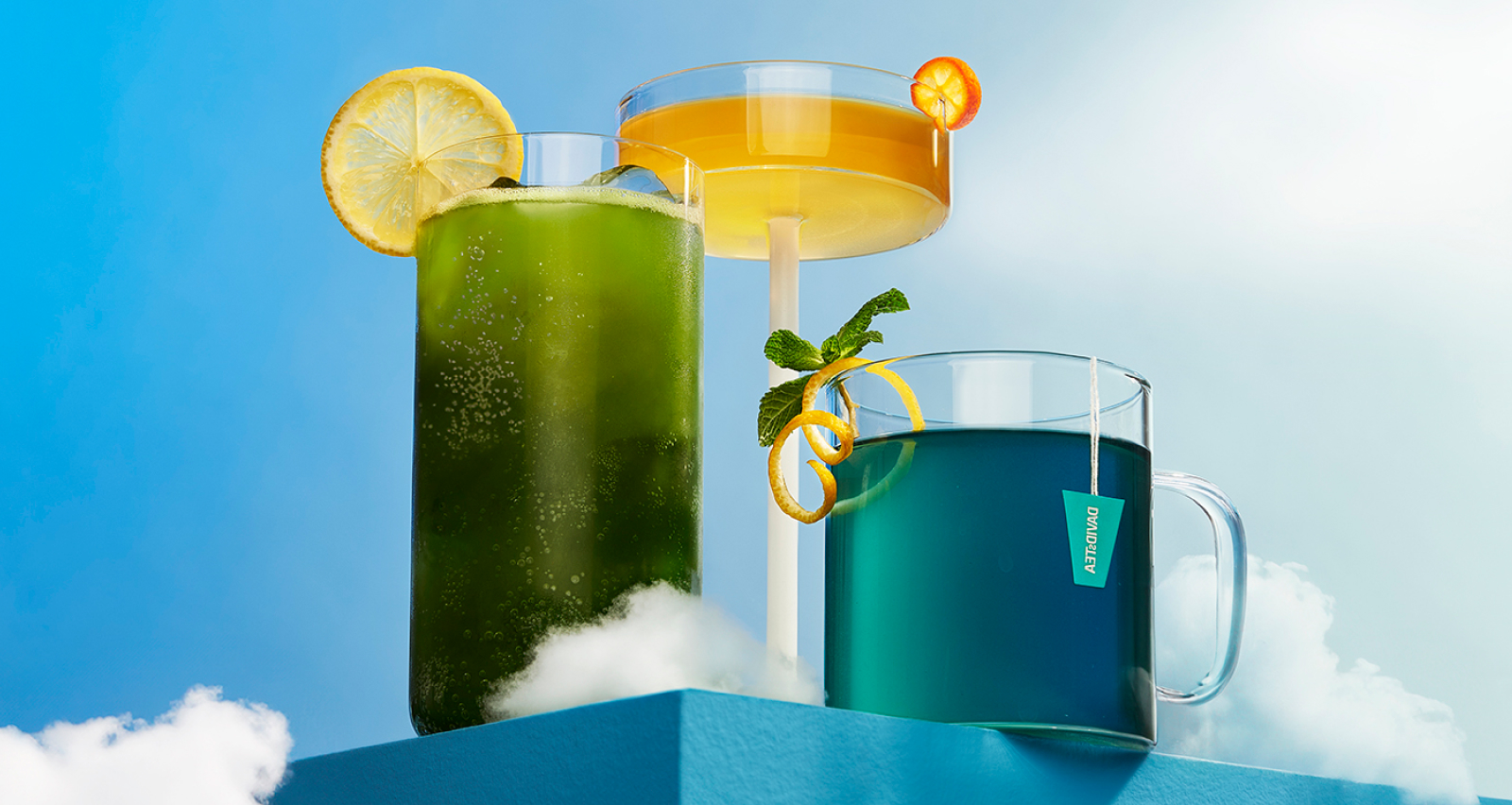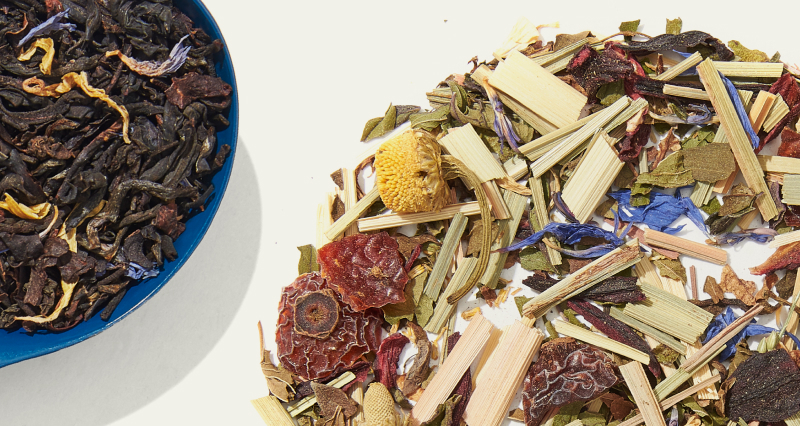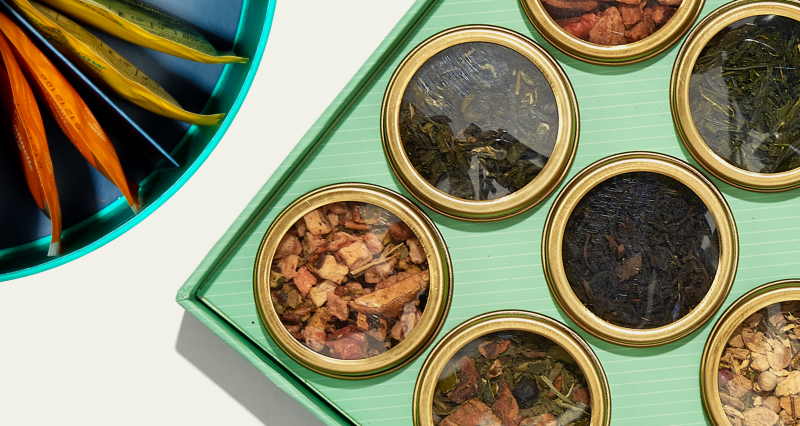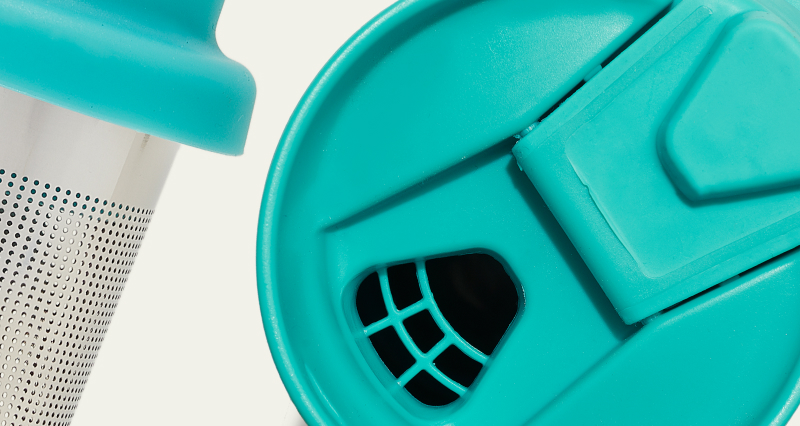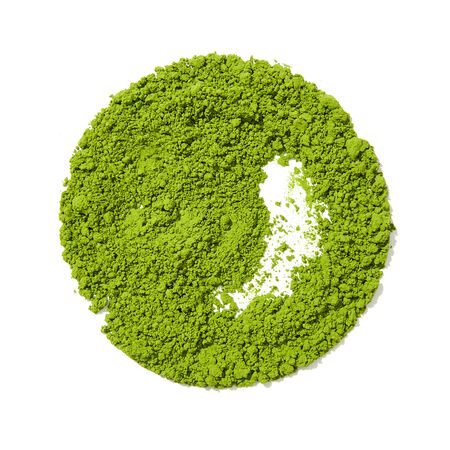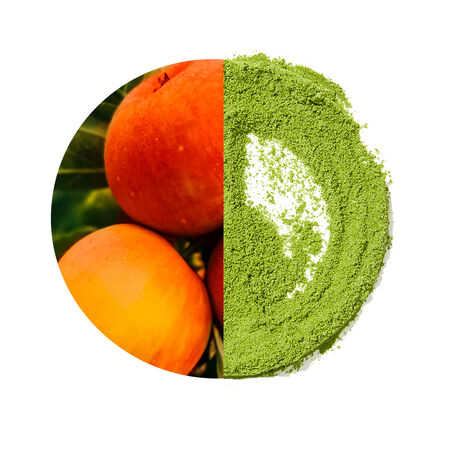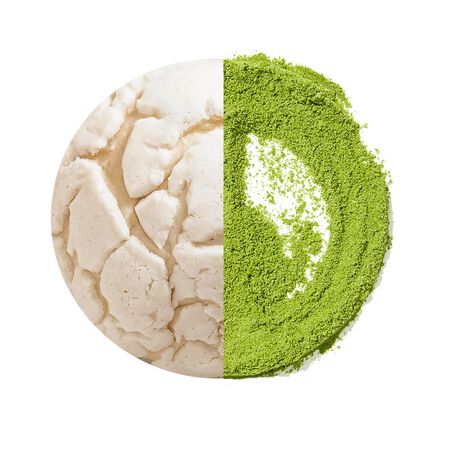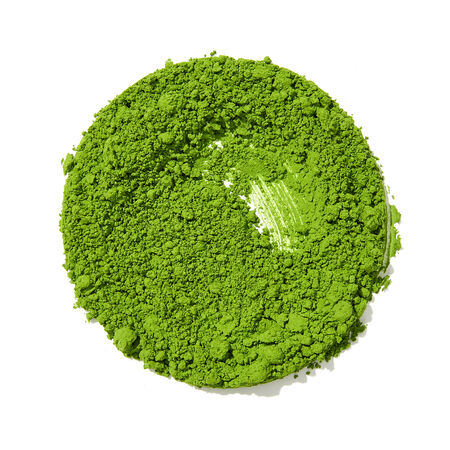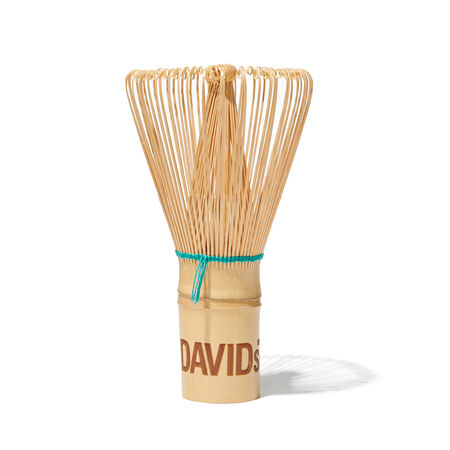season 2 | ep. 16
much ado
about matcha
with Celia Aceae

steeping together podcast
- season 2 | Ep. 16
much ado about matcha
with Celia Aceae
episode transcript
Marika de Vienne 0:18
Welcome everyone to a special mini episode of Steeping Together, where we explore a specific topic within the vast world of tea with a tea enthusiast. I'm your tea-obsessed host Marika and, as usual, tickled pink to be here. Ahh matcha, the silky, creamy, delicious traditional cup of ground tea leaves from Japan that only continues to increase in popularity here in the West with each and every year. We love matcha here at DAVIDsTEA, and continue to import traditional matches from some of the most historic gardens in Japan, as well as continuing to innovate new flavours and matcha concepts as much as we can. We get so many questions about matcha from customers, aficionados and newcomers alike, and we thought it would be a good idea to sit and talk about the wonders that the world of matcha has to hold. And in order to do so we have Celia Aceae with us once more, ready and willing to speak all things matcha. Welcome, Celia!
Celia
Hi, thank you.
Marika de Vienne 1:22
Celia, remind me who you are?
Celia Aceae 1:26
Sure! So my name is Celia Aceae as you mentioned, and I am the Tea and Sustainability Specialist here at DAVIDsTEA. My background is in all things related to plants. So I studied conservation originally and then horticulture. And that led me to tea because tea is just plants. And while I was studying horticulture, I actually did an internship where I lived in Japan for three months and I studied growing microgreens for Michelin star chefs and matcha. So that really, you know, I had already been interested in tea and matcha to begin with. And that was what prompted me to go to Japan and choose Japan as a country for me to do my internship in. And I was so lucky with the opportunities that they had there, that I got to work with a lot of different matcha growers and a lot of different matcha instructors and participate in a few different ceremonies. And that was really exciting, so I'm really excited to be talking about matcha and sharing this immense passion that I have.
Marika de Vienne 2:24
Yeah, when this topic came up, you were the only person on my list. I was like Celia has hands-on practical experience in the terroir of origin of matcha. And I could not think of anyone better to field some of these questions, because we are specifically going to be answering questions that we have received either through our Tea Tasting Club, which is a Facebook group comprised of people who have participated in our Subscription program, or through social media or through just you know, the FAQ on our page. We receive a lot of questions about matcha, and I thought only Celia can help me navigate 3000 years of history in 20 minutes.
Celia Aceae 3:10
Oh God. Well, I don't think I can really do that. I don't think anybody can, and honestly, I'll tell you a little story from the time when I was living in Japan. I became really close friends with a girl named Yuri. And she took me to a lot of different events and one of the things that she took me to was her regular weekly classes on the matcha tea ceremony, the Japanese tea ceremony. And while we were walking to the class, she was telling me, you know, I've been doing this every single week since I was a teenager. And I think she was in her mid 30s by that point. And I was like, wow, you must be such an expert. And she looked at me and she was so horrified that I had said that she said, Oh no, I'm just beginning. My grandmother has been doing this every week of her life, and she's an expert, but I'm really just beginning I don’t know nearly enough, I'm only in my 30s like I'm really not there yet. I would never call myself an expert. And that wasn't just modesty, and you know she was a very modest person but it was also just really highlighting how important tradition is in this ceremony, and how important it is to just–how much knowledge there is there and how you know, different it can be from location to location, how much there is to learn in terms of like the process and the ingredients that go into it and the tools that you use and the steps and the way that you look at each tool. You know, every single thing is really something to deep dive into. And so, for you to say you know let’s cover this in 20 minutes I’m like, Oh no, I have the same feeling of horror.
Marika de Vienne 05:02
Yeah I mean, matcha is like a separate category of tea because of the very nature of it being powdered. Being ground tea leaves. We're not talking about steeping, we're talking about whisking with very specific instruments dedicated to creation of this beverage. You mentioned the long cultural history that it has in Japan. I don't think we could unpack this in a 20 hour podcast, we could probably have a podcast dedicated entirely to matcha. And never cover it all.
Celia
It's true.
Marika
Like it's absolutely a fascinating world of tea. And up until maybe 15 years ago, it was really very small in terms of consumption here in North America, it wasn't really popular. And now we're seeing you know, matcha ice cream, add matcha to your smoothies, start your day with a shot of matcha, like matcha is just part of the conversation. It's something you can order at Starbucks, it’s something that people are really, really more, at least they've had contact with. And with that brings a lot of questions. So we don't have time to talk about every single question. I do want to give a shout out to Véronique Bélanger, who on our Tea Tasting Club was the person who suggested we do a matcha episode. So thank you for encouraging us to get even more into a subject we couldn't wait to talk about! And I want to talk about the first question we're going to tackle. Are you ready Celia?
Celia
Oh, I'm ready.
Marika
Okay, I'm gonna read the question as it was submitted. “I've heard metal touching matcha makes it oxidise faster, like using metal spoons or metal whisks. Is this a myth?” Celia, this generated so much conversation between you and I, we were on that Zoom call for like half an hour just debating this question. So we're gonna need to set a few contextual elements so that everybody understands what we're saying, because this is a very, very divisive question. I mean, I don't know that they use, I don't know that they use metal instruments in the Japanese traditional ceremony. I've never ever seen it.
Celia
Oh no, no, definitely not.
Marika
It's always wood, right? So can you use metal, when you make your matcha?
Celia
You can. You can…
Marika
I can hear a but coming!
Celia Aceae 07:28
Yes, you can do anything you want. And honestly, at DAVIDsTEA, that's what we're all about. We're about doing what works best for you. And, you know, that really means making the choices that fit with your lifestyle, with your flavour palate preferences, you know, any part of that–do what's right for you. And that, if you're enjoying your tea, that's the most important thing to us. So yes, there are hundreds and hundreds of years of tradition that go into the Japanese tea ceremony, which is what brought us matcha. But, you know, there's also a modern way of living and so what works best for one person might not be what works best for someone else. So for me, personally, I'm gonna say that I don't love the flavour of metal. And that goes for any of my teas, actually. When I'm drinking, especially a traditional tea, I usually drink it out of glass or ceramic. And that's just a personal preference. It really comes down to personal preference, it's how much do you care about the flavour? How much do you notice the difference in the flavour some people don't notice at all. If you're drinking a really intensely flavoured tea, maybe you're not going to notice a difference with metal. And that's okay. I know some people, I have some friends who only use filtered water for their tea and coffee, because they care what their tea and coffee tastes like. And when they're drinking water, just plain water, they're drinking it from the tap because they don't care what it tastes like at that point, they're just drinking it for hydration. And when I when I heard that, I really thought about that statement on everything else that I do in my life, you know, it's really, it comes down to the care of the flavour of what I'm consuming, and that can look different for everybody.
Marika de Vienne 09:08
It's interesting and I just want to put like a little asterix around care because I feel like there's a lot of judgement when you tell someone, I guess you don't care about like its potential flavour. Like I drink my occasional glass of white wine out of a mason jar. It's not that I don't care, that white wine when I do on occasion take it, very crucial to my surviving the next few hours of my evening. You know, it’s not that I don't care. It's just in that moment, what do I need that beverage to provide for me? Do I need to taste all the floral notes of the white wine–no, no, I need to just have the flavour, have the basic flavour, take a moment for myself, drink it in my favourite cup, my favourite glass mason jar for that, and that's what I'm looking for in that moment. So care doesn't mean that you're not interested in making the best possible version of anything. It's just what is more important to you in that moment.
Celia Aceae 10:08
For sure. And for me making matcha comes down to, you know, being really present with what I'm doing in the moment. So I'm someone who, I'm high energy, I'm fast-paced already, probably shouldn't be drinking matcha every single day, you know, I’m an intense person! And something that we hear a lot in this day and age is be mindful, be present. And I have a really hard time with that. And that's not for lack of trying, my parents sent me to meditation camps when I was a child. Like, I know what that means, but where I find myself being the most present, and the most mindful is when I'm actually doing something. And it's one of the things that I love about horticulture. It's one of the reasons I love studying martial arts. And I find that same presence and mindfulness, when I'm making matcha. I love to be there with my whisk, with my tea, I love to be thinking about every action that I'm taking. And so when I'm making my matcha, I'm doing it in a much more intentional way than maybe some other people are, who are drinking it for the benefits or for the energy that they're getting out of it. And so maybe they're doing it, they're grabbing it on the go, and they're putting it, you know, in whatever works best for them. And their intent when they're drinking matcha is very different from my intent when I'm drinking my matcha.
Marika de Vienne 11:29
Absolutely. And I count myself as one of those people because I have you know, we have these Matcha shakers here at DAVIDsTEA, where you're not using the whisk, you just put your matcha in the shaker, you add your water, you shake it up, and you have matcha. I have the stainless steel one. I use it all the time. Now, intellectually. Do I understand that having the matcha coming into contact with the metal is going to alter its flavour slightly? Yes, yes, I do understand that. If, however, I'm making myself a matcha, I'm not really looking for that moment of mindfulness like you do, because I find that in different aspects of my life and different teas and different preparations. I'm usually making myself a matcha latte, and I'm usually on the go. And usually just trying to get it done as quickly as possible. So intellectually I understand that there has been a very minute depreciation in the flavour because of the contact that the matcha has made with the metal. But what I need is a latte, I'm going to be adding sugar, I'm going to be adding milk. Like I'm already altering the natural flavour of the matcha by adding these other elements, so I can very comfortably use metal. Because that's not what I'm looking for in my matcha. Now, if you have found an extremely rare, extremely expensive, extremely pristine and delicate matcha. Let's say you've paid $400 for 50 grams of matcha. And those matchas exist, in Japan certainly, you can find some of them in North America. If you have gone through the trouble of getting a true artisanal, rare, hard to find matcha, is our recommendation that you use the best possible tools to make that matcha? Yeah, obviously. I mean, you just spent $400 on this, you want the absolute best out of that matcha. I mean, would you agree with that statement?
Celia
Totally. Yeah, absolutely.
Marika de Vienne 13:27
So it's a little hard for us to encompass that answer in like our FAQ page when people ask us that because it's, we have to write like, no, it's fine. Because the difference in flavour is there. Is it significant enough to detract from your enjoyment of the beverage? Not in our estimation.
Celia Aceae 13:47
And people I think, they hear that and they get really hung up on it, and they get really, they're like, oh, man, is this changing everything I know about the beverage that I'm drinking, like, what is the impact? And I think that that's really where we're coming from when we're like, no, it's gonna be okay.
Marika
Yeah, you’re gonna be fine! Matcha is so daunting for so many people to begin with, because it's a completely different way of preparing your tea, that we're just trying to ease everyone into it. Like you don't have to be a master of ceremonies and an expert in matcha to enjoy a matcha because as you stated at the top of the episode, we're looking at 60 years here, we're looking at 60 years of complete weekly dedication to this thing. Just a quick example before we move on to the next question, because I think a good way to understand like, what we're trying to say is to put it in a different context. So my husband cooks a lot, thank God because I never do. And he makes an amazing lasagna. He makes a really simple but very comforting lasagna, perfect in the middle of winter. And he's made it in glass casseroles and cast iron pans, and the cast iron pan lasagna–same ingredients, same cook time, same everything–is way better. Way, way, way better. It's crispier, it’s more flavorful. And that's because the heat gets cycled into the cast iron pot in a different way than it does in the glass casserole. Does that mean I won't eat the glass casserole lasagna? No, it's a really good lasagna. Like it's so good Celia, like it's so so so good. But sometimes when you know, it's a Saturday night, and you know, we want to feel fancy and we want to just have a perfect lasagna, he reaches for that cast iron. So metal, wood, glass, these are all things that you have to take into consideration when you're preparing anything, but allow yourself to not always be perfect. It's okay.
Celia Aceae 15:50
And to think about where the origin of that concern comes from, which is, you know, a place where we're just as concerned about, did you turn your bowl three times? Instead of two? That's a drastic mistake as well. In some parts…
Marika
Yeah! Of the traditional tea ceremony, and like how you make, how you turn the bowl left to right! Did you turn it right? No, blasphemy, you know, like, let's give ourselves a break.
Celia
Yeah, it's okay. We're here and we're drinking our matcha. And we're gonna be alright.
Marika
We're gonna be alright!
Celia
And we’re loving this!
Marika de Vienne 16:30
I love how, how we're able to have this conversation. I just love how we're able to give like context to it and bring a larger answer to it. With that said, let's move on to question two. I've heard that you should keep matcha in the freezer for optimal freshness. Is this true Celia?
Celia Aceae 16:47
Whoa now. Alright, so this is another question that really comes down to what your process is in drinking matcha. So, for me, if I'm drinking a matcha every single day, I'm not going to put it in the freezer, because I don't want to be going into the freezer and opening my bag and scooping it out. And like what if a little bit of moisture gets in there and damages it? And you know, tea by nature is hygroscopic. So it means that it absorbs flavour from things. That's why we add flavour. That's why we add, that's why it scents so well with jasmine. You know, tea absorbs flavour from its environment. And that's what it's made to do. So when you're putting it in the freezer, I don't know about you, but my freezer doesn't always taste or smell that great.
Marika
There’s a lot of shrimp in my freezer right now.
Celia
Yeah, I don't love, you know what I mean when I'm talking about fleet freezer flavour?
Marika
Yes! Yeah, that dry ice, cold… yeah! I think the misconception is, and this is something you told me a while ago, is that in Japan or with different matcha producers throughout the world, they will have dedicated freezers to preserve their matcha, were only matcha is kept, where the temperature is regulated, very specifically to conserve the matcha. We're talking about professionals who are selling an optimal product. We're not talking about the consumption habits of you or myself or yourself at home.
Celia Aceae 18:18
Exactly. So yeah, if I'm drinking my matcha every single day, I'm keeping it out. You know, if I have an extremely fancy matcha, I went to Japan, I visited some friends, I got a matcha that I will probably never be able to drink again. I might take it home, bundle it up or seal it really well. Several layers. And put it in my freezer to save for like that perfect moment that I want to recreate my experience that I had there, you know, maybe then I will freeze it. But generally no.
Marika
Yeah, I don't think it's necessary. If you look at your matcha consumption rate. And I think even if you're consuming, let's say 50 grams over six months, it's not a step that's necessary in preserving the matcha. Excellent, thank you so much for answering. Because I used to keep it not in my freezer but in my fridge and I just found that it was getting so many different fridge scents, you know? It was acting more like baking soda in my fridge than it was–
Celia
Oh, I don’t love…no. When I drink matcha I want to love!
Marika
Right, right, right. You don't want shrimp flavoured matcha, not something you're looking for in your life?
Celia Aceae 19:25
You know what? It's umami enough. It’s got some oceanic notes already. I don't need extra shrimp!
Marika
Excellent. Okay, last question. What is the best matcha to try first if you've never tried it before? Okay, I'm gonna start. So if somebody had asked me this question face to face like in a DAVIDsTEA store, I would have said we have two main categories of matcha, we have traditional unflavored matcha, unsweetened matchas. And we have sweetened flavoured matches. And I think you should start with our Matcha Matsu, which is kind of like the introductory level of matcha. Nice price point, you can see if you like it, and then you should also get a Vanilla Matcha. Because who doesn't like vanilla? It's a flavour that most people understand, so it will help you decide whether you want to go the traditional route, the flavoured route, bothm but to me, those are the stepping stones. When I gave you that answer in our pre-interview before the recording, you were like, Oh, I wouldn't have done that at all. So Celia, as the resident matcha expert, certainly in this room, and probably in the company at large. What do you recommend?
Celia Aceae 20:38
All right, this is an excellent question. And I'm really glad that we're asking it first of all, because you're right, most people reach for Matcha Matsu because it's that introductory level, it does have a lower price point, which makes it a little bit more accessible in that aspect of things. But when I'm dealing with people who have never had matcha before, often they have a lot of questions. They don't know what to expect. And when you drink Matcha Matsu, you're gonna get a very like vegetal flavour note, it's very green, you know, a lot of people describe it as Wow, that was really green. Which is great in matcha, that's kind of what I'm looking for. And Matcha Matsu is a tea that I use very frequently to cook with and to add to my smoothies because I love that it tastes like matcha. And that's what I want in my smoothies or in like a matcha cookie, you know? But when I'm introducing someone to matcha it for the first time, I don't want them to be hit head on with that really intense flavour, I want them to understand why I love matcha. And why I love matcha is because it is so–the flavour is so nuanced. There are those creamy notes. It's sweet, it's umami, it's fresh, it's delicate, it's vibrant, it's like all of these things all in one little cup. And where I'm getting that is maybe Ceremonial Matcha. So Ceremonial Matcha is not overly intense in the vegetal flavour, I think that it's really well balanced, it's very creamy. And if you're being introduced to matcha for the first time, you want to understand that that's what a matcha can be. You want it, you want to know the best of what it can taste like because you don't want to just be introduced to the first level you want to know all of its potential and that's where you're gonna fall in love. So that's usually actually where I go first. But if we're starting at a different side of things, and we're starting with a flavoured matcha, I actually tend to go Peach Matcha because peach is a very accessible flavour.
Marika de Vienne 22:45
No I love peach, I’m sorry! My face really went “peach!?” I love peach flavour in general, I love our Peach Matcha, just because I enjoy that flavour, but I didn't necessarily see it as being as universal as vanilla.
Celia Aceae 22:57
Yeah, so everybody loves vanilla matcha, it's true, like it's a very popular flavour for us. Sometimes I find that because of the coconut nectar, it's a little bit more brown in colour and for first time matcha makers, maybe they're going to be a little bit confused about why they're seeing those little granules. So I like to play it safe and I go with the very vibrantly green Peach Matcha. And I also love that it's so versatile, you can make it iced latte, hot latte, iced tea, hot tea, you know like, it does everything so well. It's a very intense flavour, it's well balanced, you get the flavour of the matcha, you get the flavour of the peach, you start to understand where the matcha is coming in, while you're still sitting with an accessible flavour. And so those are my two top picks for introducing people to matcha.
Marika de Vienne 23:43
Well, look, I am completely comfortable saying that I stand corrected on the Matcha Matsu versus Ceremonial, because I think you're right, you want people to see the full potential. That's a great introduction. I hear what you're saying about the peach, Celia. It's not like I'm not listening. But I think we'd have to leave that up to the personal tastes of the person choosing and ultimately that kind of leads back to the nature of the question. Which one should I try first? The one that calls to you the most.
Celia
Absolutely.
Marika
Like, seriously, get the one that calls you the most. You're not doing it wrong, right? And that goes back to our first question. You're not doing it wrong! It's okay, no judgement. Pick the one that interests you the most and ride that tea until you get that peak moment. I'm so happy you joined me for these questions because they're not easy to write down in an email. It's not something that you can answer comfortably on social media because there's just so much to unpack.
Celia Aceae 24:44
It really depends on lifestyle and personal flavour choices. And yeah, it just really comes down to so many different elements. And so you can't–it's not a one size fits all answer for any of these questions.
Marika de Vienne 24:58
I love it. So much more to discover. I know you're coming back. I mean, I know you're coming back, but I feel like we're probably going to need to do a matcha part two because it's so much more to unpack. But I'd really appreciate if people sent us their questions because it gives us a bit of direction as to what people are most interested in, in the world of matcha. This is like thousands of years of history and tradition and consumption. What interests you the most about it? Because we have a lot to say. No shortage of answers. But given both of our personalities, direction, direction is sometimes appreciated.
Celia
Oh absolutely.
Marika de Vienne 25:43
Thank you so much, Celia!
Celia
Thanks for having me. As always, it was a pleasure.
Marika
Fantastic. And thank you all for listening to today's mini episode. If you would like to reach us with comments, questions or topics for another mini episode, you can do so at steeping.together@davidstea.com or through our website davidstea.com. Have a great week and happy steeping everyone!
Celia Aceae

about the guest
Celia’s obsession with tea began as soon as she could sip. Motivated by her love of plants (and insatiable curiosity), Celia studied conservation and natural resource compliance at Lethbridge College in Alberta. She went on to obtain a Red Seal in horticulture from the Niagara Parks School of Horticulture, and currently works as a Tea, Herb and Sustainability Specialist at DAVIDsTEA. But we’re not done yet! Celia has also completed an additional bachelor’s degree of Science in Horticulture, basically proving that her love of tea and plants is no passing fancy. With an encyclopedic knowledge of plants and their various impacts on individuals as well as the planet, Celia has committed most of her time to the proliferation of tea and plant knowledge. As a trained Tea Sommelier, she brings joy to those around her by sharing a cup of tea with anyone and everyone, at any time. Fun fact: she lived in Japan for three months studying matcha production and the Japanese tea ceremony, so quiz her, she loves it!
